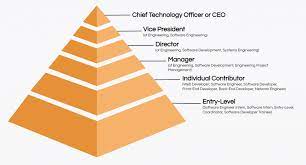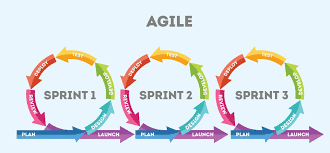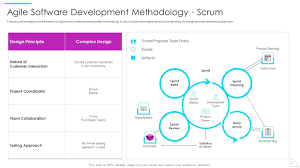Mastering the Role of a Software Development Engineer: Key Skills and Responsibilities
The Role of a Software Development Engineer
A software development engineer is a professional responsible for designing, developing, and testing software applications. This role requires a strong background in computer science, programming languages, and software engineering principles.
Key Responsibilities:
- Collaborating with product managers and other team members to understand project requirements.
- Writing clean, efficient, and maintainable code.
- Testing and debugging software to ensure functionality and performance.
- Implementing best practices in software development methodologies.
- Participating in code reviews and providing constructive feedback to peers.
- Adapting to new technologies and tools to improve the development process.
Skills Required:
To excel as a software development engineer, individuals need to possess the following skills:
- Proficiency in programming languages such as Java, C++, Python, or JavaScript.
- Strong problem-solving abilities and analytical thinking.
- Knowledge of data structures, algorithms, and object-oriented design principles.
- Experience with version control systems like Git.
- Familiarity with software development tools and frameworks.
- Excellent communication skills for effective collaboration within a team environment.
ul>
Career Outlook:
The demand for software development engineers continues to grow as technology becomes increasingly integrated into various industries. Companies across sectors rely on these professionals to create innovative solutions that drive business success. With the right skills and experience, software development engineers can pursue rewarding careers in software companies, tech startups, financial institutions, healthcare organizations, and more.
Conclusion:
In conclusion, a career as a software development engineer offers exciting opportunities for individuals passionate about technology and innovation. By mastering key programming languages, honing problem-solving skills, and staying abreast of industry trends, aspiring engineers can make significant contributions to the world of software development.
9 Essential Tips for Excelling as a Software Development Engineer
- Write clean and well-documented code
- Practice version control using tools like Git
- Learn and apply design patterns in your code
- Write unit tests to ensure code quality
- Stay updated with the latest technologies and trends in software development
- Collaborate effectively with team members through good communication
- Refactor code regularly to improve efficiency and maintainability
- Attend tech conferences and participate in coding challenges or hackathons
- Seek feedback from peers to continuously improve your coding skills
Write clean and well-documented code
Writing clean and well-documented code is a crucial practice for software development engineers. Clean code is easy to read, understand, and maintain, making it simpler for other team members to collaborate on projects and troubleshoot issues. By documenting the code effectively, engineers provide valuable insights into the purpose and functionality of each component, which can save time and effort in the long run. Emphasizing clean and well-documented code not only enhances the quality of the software but also promotes efficiency and scalability within the development process.
Practice version control using tools like Git
To excel as a software development engineer, it is crucial to practice version control using tools like Git. By implementing version control, engineers can effectively manage changes to their codebase, track revisions, collaborate with team members seamlessly, and revert to previous versions if needed. This practice not only enhances the efficiency of the development process but also ensures better code quality and project management. Embracing version control tools like Git is a fundamental skill that every software development engineer should master to thrive in the dynamic field of software development.
Learn and apply design patterns in your code
Learning and applying design patterns in your code is a crucial tip for software development engineers. Design patterns provide proven solutions to common design problems, helping developers create more maintainable, scalable, and efficient software systems. By understanding various design patterns such as Singleton, Factory, Observer, and others, engineers can enhance the structure of their code, promote code reusability, and improve overall software quality. Incorporating design patterns not only demonstrates a deeper understanding of software architecture but also streamlines the development process and fosters collaboration within a team environment.
Write unit tests to ensure code quality
To ensure code quality in software development, it is essential for software development engineers to write unit tests. Unit tests are small, focused tests that validate the functionality of individual components or units of code. By writing unit tests, engineers can identify and fix bugs early in the development process, maintain code consistency, and improve overall software reliability. Additionally, unit tests serve as documentation for the expected behavior of the code, making it easier for developers to understand and modify the codebase in the future. Embracing a test-driven development approach with thorough unit testing can greatly enhance the quality and maintainability of software projects.
Stay updated with the latest technologies and trends in software development
To excel as a software development engineer, it is crucial to stay updated with the latest technologies and trends in software development. By continuously learning about new tools, programming languages, and best practices, engineers can enhance their skills, stay competitive in the industry, and contribute to cutting-edge projects. Keeping abreast of emerging trends also allows software development engineers to adapt quickly to changes and innovate effectively in their work.
Collaborate effectively with team members through good communication
Effective collaboration with team members through good communication is essential for software development engineers to succeed in their roles. Clear and open communication helps ensure that everyone is on the same page regarding project requirements, timelines, and tasks. By sharing ideas, providing updates, and actively listening to feedback from colleagues, software development engineers can work together harmoniously to solve problems, enhance productivity, and deliver high-quality software solutions. Strong communication skills enable team members to align their efforts towards a common goal, fostering a collaborative environment that promotes innovation and success in software development projects.
Refactor code regularly to improve efficiency and maintainability
To enhance efficiency and maintainability in software development, it is crucial for software engineers to regularly refactor their code. Refactoring involves restructuring existing code without changing its external behavior, aiming to improve readability, reduce complexity, and enhance overall quality. By refactoring code on a consistent basis, software development engineers can streamline the development process, make future modifications easier, and ensure that the codebase remains robust and adaptable to evolving requirements.
Attend tech conferences and participate in coding challenges or hackathons
Attending tech conferences and participating in coding challenges or hackathons can greatly benefit software development engineers. These events provide valuable opportunities to network with industry professionals, learn about the latest technological advancements, and showcase coding skills in a competitive environment. Engaging in such activities not only enhances technical knowledge but also fosters creativity, problem-solving abilities, and teamwork skills essential for success in the ever-evolving field of software development.
Seek feedback from peers to continuously improve your coding skills
Seeking feedback from peers is a valuable practice for software development engineers looking to enhance their coding skills. By inviting constructive criticism and insights from colleagues, developers can gain new perspectives, identify areas for improvement, and learn best practices in the field. This collaborative approach not only fosters a culture of continuous learning but also helps individuals refine their coding techniques and adapt to evolving industry standards.












